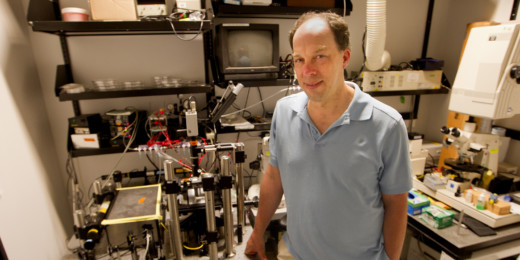A team of scientists trying to prevent premature births has turned to a new strategy: computer-assisted matchmaking.
No, these researchers aren't right-swiping on dating apps. Instead, they're using computers to match existing drugs to the medical condition they hope to treat. Their latest study, published recently in JCI Insight, suggests that a widely used antacid may be able to prevent pregnant women from going into labor early.
"The fact that we could come up with a compound that could be helpful to patients and fairly safe is very exciting to me," said senior study author Marina Sirota, PhD, a biomedical informatics scientist at the University of California, San Francisco. The study's lead author is postdoctoral scholar Brian Le, PhD, and Le and Sirota collaborated with colleagues at the March of Dimes Prematurity Research Center at Stanford University on the study.
"With this approach, we're speeding up the drug discovery process tremendously," Sirota said.
The research was driven by substantial medical need: Around 10% of U.S. births occur three or more weeks early, and premature birth is the leading cause of death for children under age 5 worldwide.
Even when doctors know in advance that there's a risk of early delivery -- such as when a woman has a history of prior preterm birth -- treatment options are limited. The only medication approved to prevent premature labor, the hormone progesterone, works for just 30% of women who receive it.
To make the drug-disease match, Sirota's team started with gene-activity data from a prior study of premature deliveries, which showed that several genes related to immune function were abnormally activated or deactivated in pregnant women who went on to deliver early.
The team compared these gene-expression patterns to a large public database describing how thousands of drugs change gene activity. They wanted to find drugs whose effect on the immune-system genes was the opposite of that observed in the disease.
"We wanted to see what drugs might reverse the gene-expression signature," Sirota said. "Our hypothesis was, if the signature is reversed by a drug, it could be therapeutic."
Eighty-three compounds, most of which are FDA-approved drugs, were potential therapeutic candidates, including progesterone. But progesterone wasn't predicted to be a top performer; when the computer scored the strength of each match, it ranked 82nd out of 83. This was encouraging, Sirota told me: The team was on track to find something better.
The scientists narrowed the list to drugs that are safe to take during pregnancy. Now, they had just 13 matches, with progesterone still there, low on the list.
They then chose one drug with a good safety profile and high potential to reverse gene the activity associated with prematurity. It's an antacid called lansoprazole that is typically prescribed to treat gastroesophageal reflux disease.
Next, scientists at Stanford, led by neonatologist David Stevenson, MD, the prematurity research center's principal investigator, tested lansoprazole in pregnant rodents. Again, the results were encouraging, with the drug showing signs of being able to prevent premature delivery.
Sirota hopes the research will advance quickly into studies in people. "We still need to run a clinical trial to investigate this," she said, adding that such a trial is essential before the drug could be recommended to pregnant women for preventing prematurity.
Scientists also need to develop better ways to predict which pregnant women are at risk for early delivery, since that information is key for knowing who might need the drug. However, another team at Stanford has already made good headway on that problem, too.
Photo by Tim Bish






